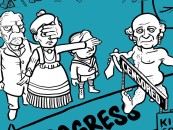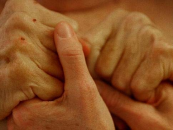In legal terms, Australians have a right of self-defence. While some states rely on the common law and others have it enshrined in statute, the right itself is never questioned. Moreover, juries consistently refuse to convict those charged with serious offences whenever self-defence is made out.
What we don’t have is the practical ability to exercise that right. Possessing any object specifically for the purpose of self-defence, lethal or non-lethal, is a criminal offence. There are many women, raped and/or murdered, who would have been liable to prosecution had they been carrying anything that might have saved them.
Those agile enough to retreat from an assailant can obviously do so if it is feasible, and it is lawful to use items at hand such as screwdrivers, kitchen knives and beer glasses. But for those unable to flee, insufficiently strong, or with no improvised weapon, there is no option for them but to rely on the police or – if they are lucky – bystanders, to protect them from assault or theft.
Prohibited self-defence items include pepper sprays, mace, clubs and personal Tasers. In some States carrying a pocket-knife is illegal and even wearing a bullet-proof vest is banned.
The Prime Minister is protected by armed guards at taxpayers’ expense, and the wealthy can hire armed security guards, but the safety of everyone else relies on the assumption that the police can keep us safe. And as the saying goes, when seconds count the police are minutes away.
What this means is that self-defence is not a realistic option for most people, and especially not for the majority of women, elderly and disabled. We have become a nation of defenceless victims.
It wasn’t always this way. A couple of decades ago it was common for individuals faced with an imminent threat of violence to be encouraged by the police to apply for and be granted a permit to carry a pistol. Women pursued by violent ex-husbands, and of course jewellers and owners of gun shops, were among them.
Australia’s ban on practical self-defence sets it apart from most other countries. Almost none prohibit non-lethal means of self-defence, while many permit ownership of firearms at home. A few (including most US states) allow the carriage of firearms for self-defence almost anywhere, subject to a permit system.
Australia’s prohibition on practical self-defence is relatively recent, emanating from the 1996 changes in firearms laws that followed the Port Arthur massacre. Not only were many types of firearm prohibited, but Australia embraced an international push to prohibit civilian ownership of firearms for self-defence.
This was driven by several factors. One was a desire to avoid America’s so-called ‘gun culture’. However, this was broadened to include all means of self-defence. Another was a type of religious pacifism, of ‘turning the other cheek’. There was also a version of the precautionary approach – average citizens may one day be struck with murderous tendencies. And then there were the perennial claims that resistance is futile and weapons will inevitably be turned against those using them. Underlying all these is the assumption that the government will always be there when we need it.
Australians are probably unlikely to embrace the use of guns for self-defence except in special cases (a battered wife dealing with a murderous ex-husband, for example, or within our own homes).
But there is equally no sign that Australians ever agreed to or have accepted being rendered defenceless. In particular, women and the elderly do not believe that relying on the police to arrive in time will keep them safe. If asked, most would unequivocally demand the right to practical self-defence, at least with non-lethal means.
It should never have reached this stage. Only an authoritarian society would treat its people like helpless victims, with the government masquerading as some kind of guardian angel. Free societies have a strong emphasis on individual self-reliance, including responsibility for personal safety.
It is also the height of hypocrisy for anti-violence groups to fail to promote the availability of practical means by which potential victims can protect themselves against predators.
Restrictions on non-lethal means of self-defence should be removed, while methods with limited potential to cause harm should be made available but restricted to adults. It is time to stop pretending the government is watching over us.
David Leyonhjelm is the Liberal Democrats’ senator for NSW.








